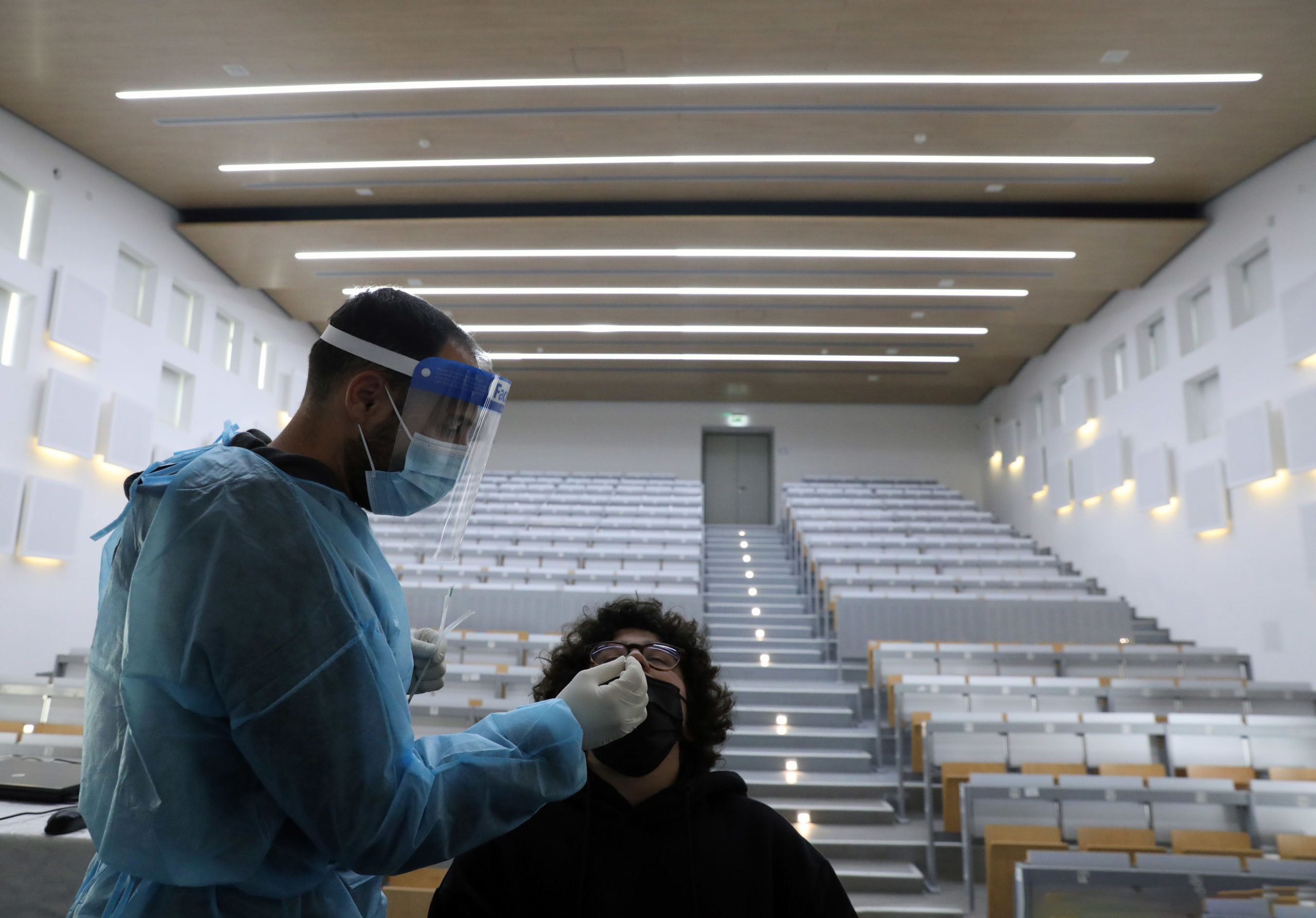Testing rules for schools and nursing homes were tightened on Wednesday, as the government ushered in additional measures to stem an Omicron powered fifth wave of infections.
Next week, authorities will introduce a ‘test to stay’ policy for schools, increasing testing for students in classrooms where positive cases are detected.
Under the new regulation, close contacts of confirmed unvaccinated cases will undergo daily rapid tests for five days instead of being instructed to go into self-isolation.
Provided their rapid test is negative, students will be allowed to participate in the day’s classroom activities.
The measure will be in place from January 17 to February 16 in primary and secondary schools to keep them operational and detect cases promptly, the cabinet said.
The Health Ministry said the decision only affects students, while tests will be carried out by mobile units visiting schools.
The cabinet also decided to lift a ban on visits to nursing homes and confined institutions will be lifted, allowing entry only to people who have completed their vaccination programme and seven months has not elapsed.
People with a booster shot or a recovery certificate less than 90 days will also be allowed entry.
All visitors allowed entrance must also present a negative rapid test not older than 24 hours.
A third change introduced requires all Cyprus arrivals to carry a 48-hour PCR test waived and replaced by the request for a 24-hour rapid test or a 72 PCR test.
Passengers will still need to undergo a PCR test on arrival, regardless of their vaccination history. The cost of the test is €15 at Larnaca airport and €19 at Paphos airport.
Health Minister Michalis Hadjipantelas said the decision to step up its testing policy for schools and nursing homes showed there was no room for complacency.
“With a positivity rate of more than 3% and over 28,000 cases since the last meeting of the Council of Ministers, hospitals are working tirelessly to respond to the increased number of hospitalisations,” said Hadjipantelas.
The minister said the government would be on alert, evaluating epidemiological data with the scientists “to safeguard public health”.










